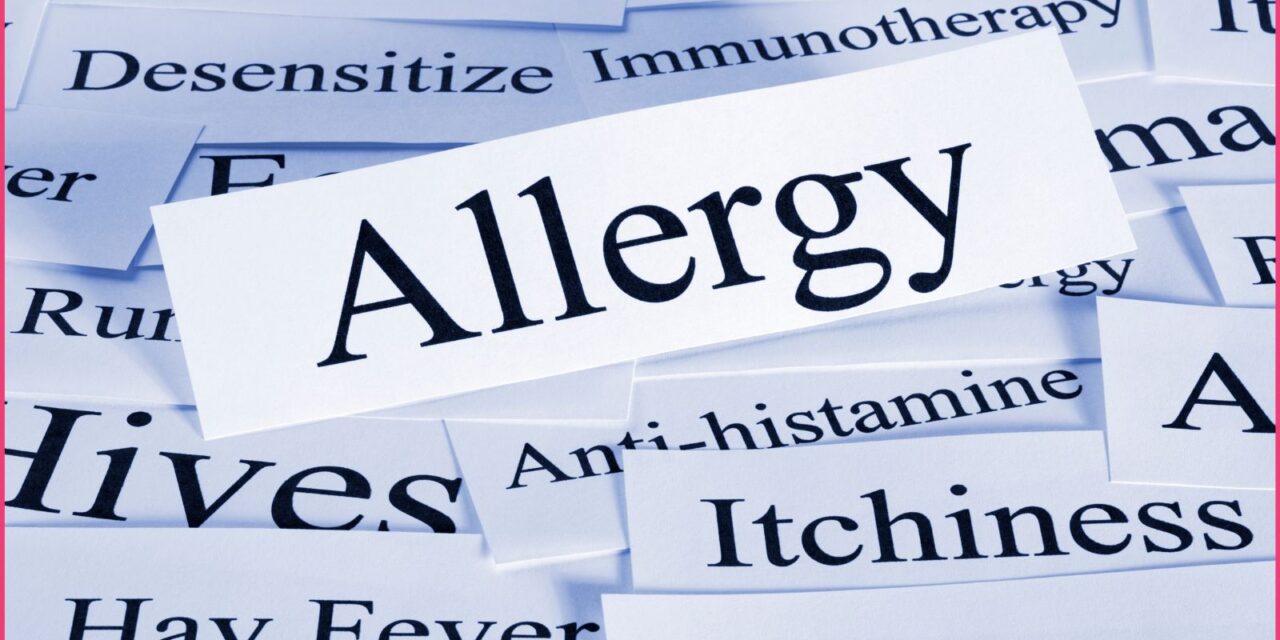As we move into the warmer months, there’s a good chance you’ll know someone with hay fever. This allergy is caused by the increase in pollen from trees and grass, especially during Spring.
But did you know there are many types of allergens – the things that cause an allergic reaction? From food to pets to dust mites, allergens affect 1 in 3 people in the UK.
While allergic reactions can cause something as simple as a runny nose, some symptoms can have far more serious effects. In the past 20 years there’s been a huge rise in hospital admissions due to anaphylaxis – a potentially life-threatening allergic reaction.
For Allergy Awareness Week, which runs from 22 to 28 April, we look at the causes of allergies, and how to combat them.
Causes and symptoms of an allergy
From a runny nose to itchy skin and swollen throat, allergens, and their causes, can vary as much as the symptoms.
Allergens can include:
- tree and grass pollen
- house dust mites
- foods, such as peanuts, milk and eggs
- animals, particularly pets like cats and dogs
- insect stings, such as bee and wasp stings
- certain medicine
Symptoms of an allergic reaction can include:
- a runny nose or sneezing
- pain or tenderness around your cheeks, eyes or forehead
- coughing, wheezing or breathlessness
- itchy skin or a raised rash
- diarrhoea
- feeling or being sick
- swollen eyes, lips, mouth or throat
If you, or the person you’re with, shows signs of a serious allergic reaction which might need immediate treatment, you should get to your nearest hospital. Find your nearest A&E here.
The 14 food allergens
Many of us will enjoy peanut butter on toast for breakfast, or as a late-night snack. Other people find pleasure in a bowl of mussels, or a prawn dish when they visit a restaurant. However, for some people those food groups can cause allergic reactions.
There are 14 regulated food allergens.
UK food businesses are legally required to inform you about them if they’re used as an ingredient in food or drink. This is known as Natasha’s Law.
What’s in your morning coffee?
And while certain food groups in a restaurant can be avoided, have you thought about the possibility of cross-contact and food labelling at take-away drink shops?
Regular sampling of hot drinks (usually coffee) from shops has found cross-contamination risks. If you have an allergen, you should make it clear your food request is being made for allergenic reasons. The shop’s staff can then tell you if it’s able to supply that drink to meet your requirements.
There are also false beliefs that vegan food is suitable for those with certain allergies such as milk or egg. This could leave around one in 20 of the UK’s population that follow a meat-free diet at risk.
A report by the Chartered Trading Standards Institute warned the lack of a legal definition for vegan food has the potential for putting people with allergies at risk. For example, there are no legal rules to ensure vegan or plant-based food doesn’t contain ingredients such as milk.
The Food Standards Agency is the national authority responsible for providing consumers with hyper-sensitivity concerns with vital information about food allergies and intolerances.
Living with an allergy
Living with allergies should not impact your quality of life. They shouldn’t stop you from travelling, visiting restaurants or even just relaxing at home.
From understanding your specific triggers to putting managing strategies in place, there are many practical things you can do to ensure allergens don’t negatively affect your life.
Allergy UK has practical tips and advice on managing your allergies in every aspect of your life.




